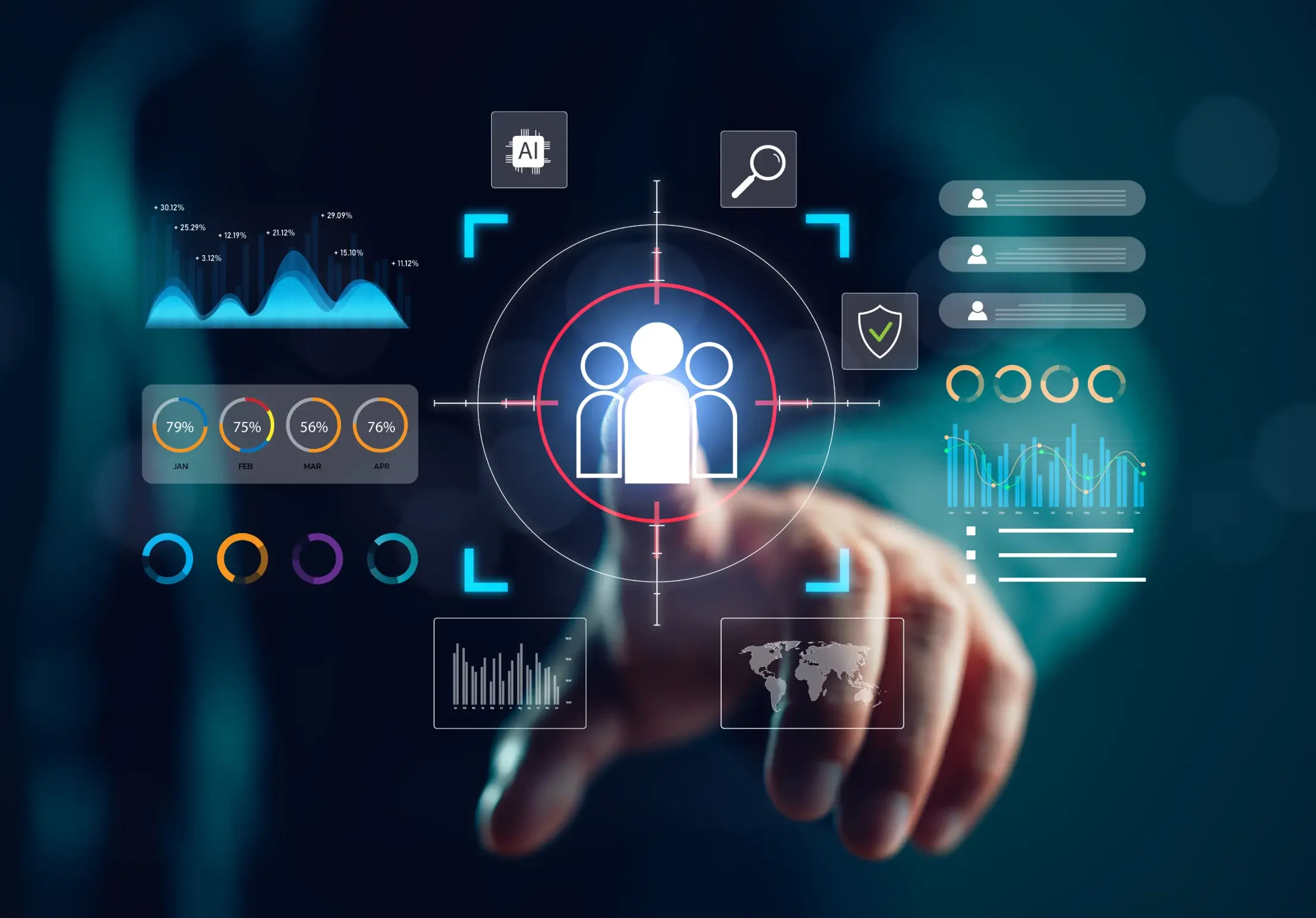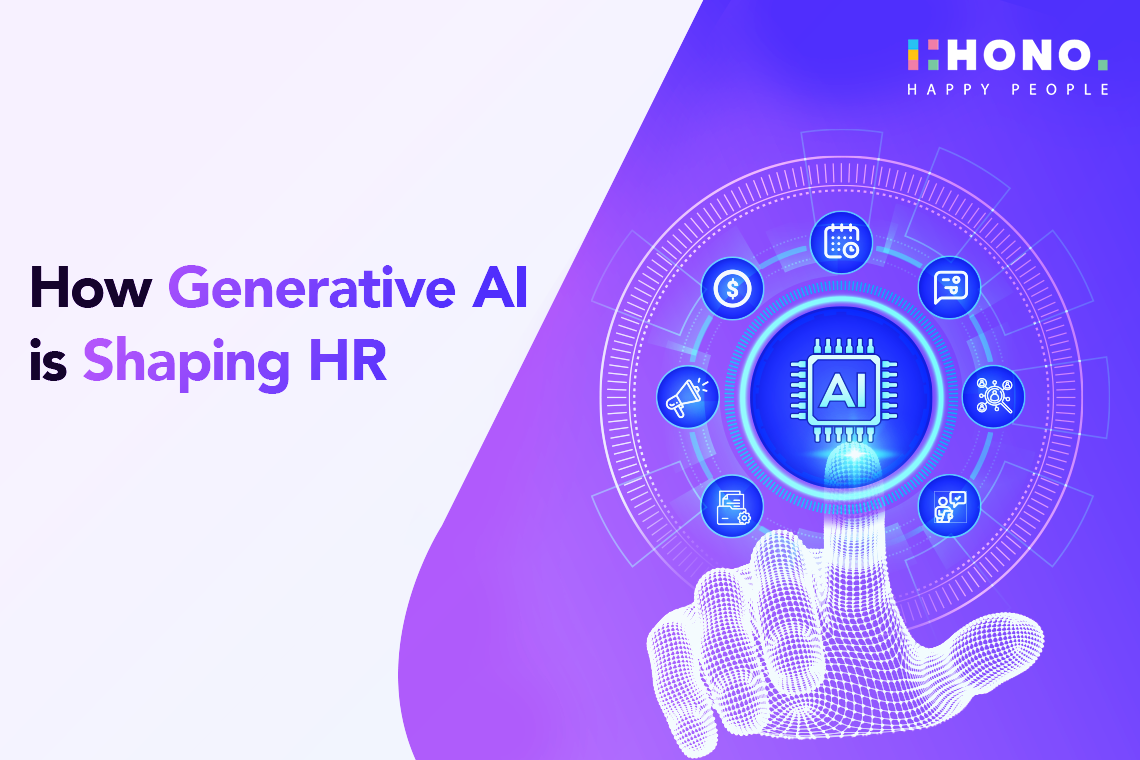This exclusive cohort discussion co-curated by ETHRWorld and HONO dives deep into the role of intelligent HRMS and conversational AI in refining EX for next-gen workers. Key insights derived from the discussion are highlighted below:
Implementing Intelligent HRMS to Improve Productivity and Retention
In today's dynamic and unpredictable business ecosystem, workforce agility, productivity, and engagement are the pillars upon which the foundation of a resilient organization can be laid. To navigate workforce productivity and retention in the new talent economy, businesses must create transformational opportunities for their in-house talent to enable individual growth & development, which in turn fuels employee motivation, engagement, and commitment. With an intelligent HR suite, organizations can identify potential growth opportunities for Hi-Pos in the work matrix and deploy predictive analytics to gauge engagement levels for better decision-making.
According to Pathik Almoula, CHRO, Steel Strips Wheels, “For the majority of industries contributing to the global economy, all workforce decisions are primarily driven by job roles. Thus, implementing a role-based productivity engine by leveraging predictive AI is imperative to augment workplace productivity. Moreover, through intelligent workforce planning & analytics solutions, people leaders predict personnel requirements beforehand and avoid the dangers of understaffing or overstaffing. AI-driven HRMS can also facilitate better workforce & workstream management by carrying out pattern recognition to give HR decision-makers actionable insights into employee work and turnover patterns,”.
During the discussion, Krishna Sahai, Head Group HR, Dhampur Sugar Mills Ltd, pointed out that “An HRMS that can facilitate scalable upskilling and reskilling of workers, especially in the blue-collar space, is the need of the hour,”. Resonating with the same, Pathik further added that “Incorporating AI into the L&D landscape can enable the development of personalized learning paths for individuals. Such customized learning journeys can improve employee engagement significantly, thus encouraging employee retention as well as development,”.
Enabling Career Progression and Employee Experience with Conversational AI
In the new world of work, the definition of employee experience has evolved prompting companies to re-evaluate the way they interact and engage with their people. With the digital native generation rapidly streaming into the workforce, the need to revamp and modernize all employer-employee touchpoints is more than ever.
Elaborating on the same, Samriti Malhotra, Global HRD Head, Denave India, said, “This next-generation of workers gives more credence to technology than any of their predecessors. Given that they have grown up in the age of technological advancements, they expect technology to be present at all corners of the workspace. In order to align with their expectations, inducting conversational AI into the HR ecosystem is necessary,”.
Highlighting how conversational AI can be leveraged to augment employee experience via career development and progression, Samriti shared, “The use cases of conversational AI in the space of people management are immense. AI-driven chatbots can facilitate all core HR functions, from resolving employee grievances to new-joiner orientation. This technology can also be used to increase employee visibility into career progression and growth opportunities within the organization. Through conversational AI, employees across functions and business units can be informed about the various diagonal and horizontal career paths to enable better internal mobility. It can also be leveraged to map the career paths/aspirations of individuals with relevant L&D prospects and mentorship opportunities to ensure holistic workforce development,”.
HR Transformation: Shaping the “New Possible” with Intelligent HRMS
In an era of workplace upheaval, companies that create tailored, authentic experiences strengthen employee purpose, ignite energy, and elevate organization-wide performance. In the pursuit of enhanced people's experience, tech-powered intelligent people management solutions can be the biggest enabler of employee engagement and sustainable business growth. Elaborating on the use case of intelligent HRMS for advanced enterprises, Sharat Sawhney, Head Product & AI/ML, HONO, said, “An intelligent HRMS uses data and smart tech to automate and optimize core processes & mundane clerical tasks. It also helps the leadership in predicting outcomes & extracting actionable insights,”.
According to Mukul Jain, Founder & CEO, HONO, “The future of work belongs to conversational AI and intelligent HRMS. Today, workplace experience is all about convenience, collaboration, and communication. With AI-powered HR solutions, organizations can streamline core HR processes and create an ecosystem of intelligent people management that not only empowers enhanced employee experience but also enables businesses to feel the pulse of their workforce,”.
Many companies have implemented a Human Resource Management System (HRMS) within their operations, ranging from basic tools to comprehensive cloud-based systems that handle everything from recruitment and employee management to payroll and retention. However, the essence of an intelligent HRMS lies in system integration. According to Sandeep Gautam, CHRO, NBC Bearings, “An intelligent HRMS is one that offers an integrated suite of HR solutions wherein all modules are closely knit, and talk to each other. Such aligned HR systems can streamline cumbersome HR processes that require manual data entry and are highly susceptible to human error. Additionally, the AI algorithms native to intelligent HRMS give end-users an edge in terms of proficient workforce management and HR decision-making,”. Thus, from employee experience to productivity management and retention, organizations backed by Intelligent HR management systems can handle all crucial people management functions via an integrated and smart suite of talent solutions.
To close the discussion, Anuj Tiwari, Advisor to Board, HONO, shared some key trends, challenges, and opportunities that will reshape and revamp the HRMS landscape in 2023 & beyond. Anuj said, “While AI integration has revolutionized HRM, there are certain gaps that must be bridged to unlock its full potential. Currently, the spectrum of intelligent HRMS is limited to the white-collared talent, leaving a large segment of the workforce overlooked and undermanaged. Upgrading smart HR solutions to enhance the engagement, training, and experience of the frontline task force is necessary. Secondly, bridging the gap between deployment of solutions and the realization of ROI is crucial to augment the effectiveness of intelligent HRMS. A healthy and collaborative relationship between IT and HR is a precursor to addressing this challenge. Last but not least, the customization of intelligent HR solutions as per industry-specific requirements to boost HR effectiveness is a work-in-progress,”.
In the new talent economy, organisations need to relook at the ways they source talent, engage and empower their people to thrive in the digital-first era. Intuitive HR solutions and conversational AI which are specifically designed to offer immediate support, personal interactions, effective automation of mundane tasks, and top-tier experience management will dominate the HRM landscape of tomorrow, and businesses must be agile enough to adapt to the shifting paradigms.
Source: https://hr.economictimes.indiatimes.com/news/industry/tech-at-work-transforming-employee-experience-with-conversational-ai-intelligent-hrms/100479312
Read our top blogs on employee experience | workforce productivity | ai in hr | hcm blogs
Request a Demo Now!

.png?width=70&height=70&name=Team%20HONO%20logo-01%20(1).png)








.jpg)
